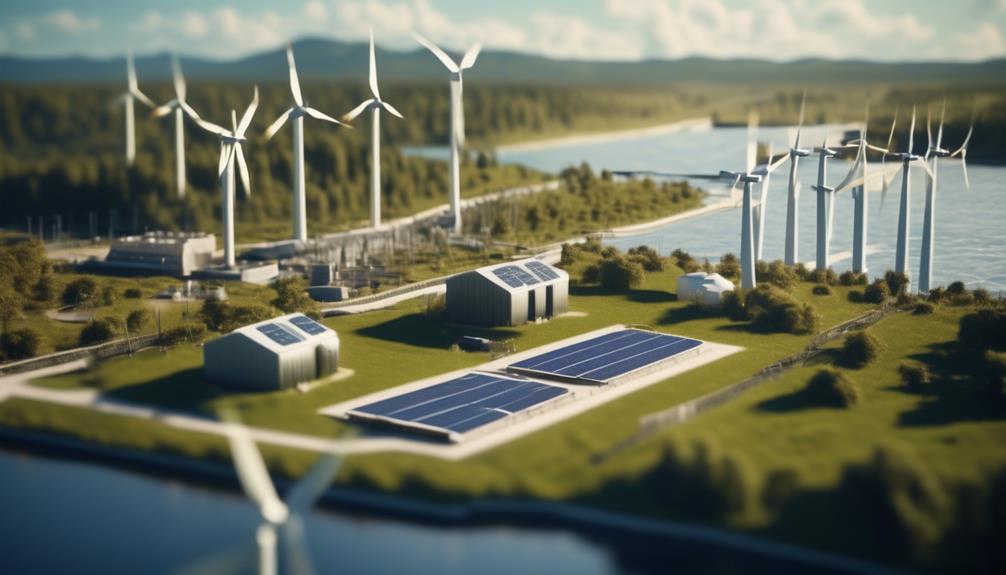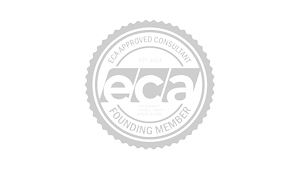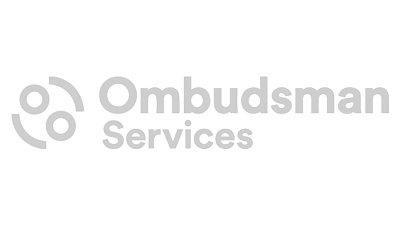In the competitive world of business, managing energy costs can be as crucial as navigating market trends or crafting the perfect marketing strategy. You’re likely on the lookout for ways to trim expenses without compromising operational efficiency, and understanding the intricacies of energy contracts could be the key you’ve been searching for.
With energy costs making a noticeable dent in the bottom line, finding the right approach to negotiate these contracts can unlock significant savings and stability for your organisation.
Drawing from years of industry experience, this guide is designed to demystify the complex process of energy contract negotiation. Tailoring our insights to meet the specific needs of businesses like yours, we delve into strategies that not only address the common hurdles in securing favourable energy terms but also hone in on opportunities often overlooked.
By establishing a connection grounded in shared challenges and aspirations, we aim to equip you with the knowledge and confidence needed to make informed decisions. As we explore the six pivotal strategies that can dramatically influence your energy contract outcomes, prepare to gain the leverage you need to navigate these negotiations successfully, ensuring your business not only survives but thrives in the evolving energy landscape.
Key Takeaways
- Conduct thorough market research and benchmarking to analyse current energy prices, supply and demand dynamics, and potential risks.
- Gather multiple quotes from different suppliers to compare prices, contract terms, and additional perks or benefits offered.
- Evaluate contract terms and consider utilising utility comparison services or energy brokers to ensure competitiveness and alignment with business goals.
- Stay informed about market trends and timing to identify optimal negotiation opportunities and take advantage of favourable conditions.
Benchmarking and Price Analysis
Benchmarking and price analysis play a crucial role in informing business energy contract negotiation strategies. In today’s competitive market, it is essential for businesses to stay ahead by continuously evaluating their energy costs and seeking ways to optimise their energy contracts.
This requires conducting thorough market research and performing cost analysis to identify the most favourable terms and pricing structures.
Market research is the foundation of effective energy contract negotiation. By analysing market trends, businesses can gain insights into current energy prices, supply and demand dynamics, as well as potential risks. This information enables businesses to make informed decisions when negotiating energy contracts, ensuring they secure favourable terms and avoid potential pitfalls.
Cost analysis goes hand in hand with market research. It involves evaluating different pricing options and structures offered by energy suppliers, comparing them against industry benchmarks and historical data. By conducting a comprehensive cost analysis, businesses can identify cost-saving opportunities, negotiate better rates, and optimise their energy consumption.
Moreover, benchmarking allows businesses to compare their energy costs and usage against industry peers and best practices. This provides valuable insights into areas for improvement and helps businesses set realistic goals for energy efficiency and cost reduction.
Gathering Multiple Quotes
When negotiating a business energy contract, it is crucial to gather multiple quotes to ensure you are getting the best deal.
Comparing price quotes from different suppliers allows you to identify the most competitive rates available in the market.
Additionally, evaluating contract terms such as contract length, renewal options, and termination fees will help you make an informed decision that aligns with your business goals and needs.
Comparing Price Quotes
To effectively compare price quotes for business energy contracts, it is essential to contact a variety of suppliers and gather multiple quotes for thorough evaluation. By reaching out to different suppliers, you can explore the negotiation techniques they employ and assess their reputation in the industry.
Once you have obtained several quotes, it is important to narrow down the options to a shortlist of potential suppliers for further evaluation. When comparing the quotes, consider not only the unit prices but also any additional perks or benefits offered by different suppliers. Additionally, keep track of price trends and fluctuations to make an informed decision.
Use a recent energy bill or annual energy statement as a benchmark to compare the quotes accurately. By conducting a comprehensive comparison of price quotes, you can ensure that you choose the most advantageous business energy contract for your organisation.
Evaluating Contract Terms
Evaluating contract terms begins with gathering multiple quotes from a range of suppliers, ensuring a comprehensive comparison of pricing options and terms. This step is crucial to ensure that you are getting the best deal for your business.
By contacting a variety of suppliers, you can gather a variety of quotes and options, allowing you to assess the competitiveness of each offer. It is also important to keep track of prices from different suppliers to identify trends, potential cost savings, and the best offers available.
Use benchmark prices from renewal quotes or market reports to help you assess the quotes you have gathered. Additionally, consider utilising utility comparison services or engaging energy brokers to streamline the process and access a wider range of quotes.
Contract Length Considerations
Considering the potential risks and benefits, it is crucial to carefully assess the contract length when negotiating a business energy contract.
The length of the contract can have a significant impact on the overall cost and flexibility of your energy agreement.
Here are some key considerations to keep in mind:
- Negotiation risks:
- Longer contracts may offer better deals initially, but there is a risk that energy prices may drop significantly before the contract expires. This could leave you locked into a higher rate when better options become available.
- Shorter contract lengths may provide more flexibility to take advantage of market fluctuations, but they may also come with higher rates and less stability.
- Contract renewal options:
- Before committing to a longer contract, evaluate the potential for prices to change before the contract ends. If you expect prices to decrease significantly, it may be more advantageous to opt for a shorter contract length.
- Ensure that your contract includes options for renegotiation before it expires. This will allow you to take advantage of any changes in the market and secure a better deal.
Carefully considering the negotiation risks and contract renewal options will help you make an informed decision about the optimal contract length for your business energy contract.
It is important to strike a balance between cost savings and flexibility to ensure that you are getting the best possible deal.
Building Rapport and Negotiation Tactics
Building rapport and employing effective negotiation tactics are essential for successful business energy contract negotiations. Trust-building techniques, such as establishing a genuine connection with the supplier and actively listening to their concerns, can help foster a collaborative environment.
Effective communication skills, coupled with a focus on win-win negotiation strategies, can lead to mutually beneficial outcomes and the establishment of long-term, fruitful relationships with energy suppliers.
Trust-Building Techniques
Establishing trust and rapport with a supplier is crucial for successful business energy contract negotiations. Building relationships and mutual understanding can pave the way for a productive and collaborative negotiation process.
To achieve this, there are several trust-building techniques that can be employed:
- Find common ground: Establish a connection with the supplier by showing genuine interest in their business and finding shared interests or goals.
- Active listening and empathy: Take the time to understand the supplier’s challenges and concerns, and demonstrate empathy towards their perspective.
- Positive body language: Maintain a friendly and open demeanour during negotiations, using positive body language to create a conducive atmosphere.
- Industry knowledge sharing: Position yourself as a credible and knowledgeable negotiator by sharing relevant industry insights and information.
Effective Communication Skills
To effectively negotiate business energy contracts, it is crucial to master the art of effective communication, including building rapport and employing strategic negotiation tactics. Building rapport is essential in negotiations as it establishes trust and understanding between parties. Active listening and showing empathy are key components of building rapport. Using non-verbal cues effectively, such as maintaining eye contact and confident posture, can also enhance communication during negotiations. Mirroring the language and tone of the other party’s communication creates familiarity and connection, facilitating better understanding and agreement. Additionally, practicing active listening through paraphrasing and summarising the other party’s points ensures alignment. Employing assertive communication by clearly stating needs and objectives while remaining open to compromise is also important. By mastering these skills, businesses can enhance their negotiation outcomes and achieve successful energy contract agreements.
| Communication Skills | Strategies |
|---|---|
| Building Rapport | – Actively listen |
| – Show empathy | |
| – Find common ground | |
| Non-Verbal Communication | – Maintain eye contact |
| – Use confident posture | |
| – Use hand gestures to emphasise | |
| Mirroring Communication | – Mirror language, tone, and pace |
| – Create familiarity and connection | |
| Active Listening | – Paraphrase and summarise |
| – Ensure alignment | |
| Assertive Communication | – Clearly state needs and objectives |
| – Be respectful | |
| – Stand firm on key points | |
| – Remain open to compromise |
Win-Win Negotiation Strategies
Win-win negotiation strategies involve creating mutually beneficial outcomes through the use of effective rapport building and strategic negotiation tactics. By adopting a collaborative approach and seeking mutual benefit, businesses can establish long-term partnerships with suppliers and achieve shared success.
Here are two key sub-lists that highlight the importance of building rapport and employing negotiation tactics:
Rapport Building:
- Demonstrate honesty and integrity in negotiations to establish a strong rapport with suppliers.
- Use active listening and empathy to understand the supplier’s perspective and find mutually beneficial solutions.
Negotiation Tactics:
- Focus on creating value for both parties, emphasising long-term partnerships.
- Seek common ground and build trust through transparent communication and a collaborative approach.
Timing and Market Trends
Analysing market trends and timing is crucial in successfully negotiating business energy contracts. To secure the best terms and prices, businesses need to stay informed about the current market conditions and industry analysis. Understanding market timing allows businesses to take advantage of favourable conditions and avoid potential pitfalls.
One key aspect of market timing is tracking energy prices. Prices for electricity and natural gas can fluctuate based on supply and demand dynamics, weather conditions, and geopolitical factors. By monitoring these trends, businesses can identify the optimal time to negotiate their energy contracts. For example, if market prices are expected to rise in the near future, businesses can lock in long-term contracts at lower rates to protect themselves from potential price increases.
Furthermore, staying abreast of industry analysis is essential for businesses seeking innovative solutions. By understanding the latest technological advancements and regulatory changes, businesses can identify opportunities for energy efficiency improvements and cost savings. For instance, emerging renewable energy technologies and government incentives may present attractive options for businesses looking to reduce their carbon footprint and overall energy expenses.
Utilising Energy Brokers for Negotiations
Utilising energy brokers for negotiations offers businesses the opportunity to leverage industry expertise and market insights to secure better contract terms. Energy brokers possess in-depth knowledge of the energy market and have established relationships with suppliers, enabling them to navigate complex energy markets and identify cost-saving opportunities.
Here are the key benefits of utilising energy brokers for negotiations:
- Expert Negotiation Skills: Energy brokers specialise in contract negotiations and have a deep understanding of the energy industry. Their negotiation expertise allows them to advocate for favourable terms and pricing on behalf of businesses, maximising cost savings.
- Market Insights: Energy brokers stay up-to-date with market trends, regulatory changes, and pricing fluctuations. By utilising their market insights, businesses can make informed decisions and capitalise on favourable market conditions.
Furthermore, energy brokers provide additional advantages in providing tailored energy solutions and contract management. They can assess a business’s energy needs and recommend customised solutions that align with their goals and budget. Additionally, energy brokers can handle the administrative tasks associated with contract management, saving businesses valuable time and resources.
Outsourcing negotiation processes to energy brokers can be cost-effective, as they often work on a commission basis or charge a fee based on the value they bring to the table. This ensures that businesses only pay for the results achieved through the negotiation process.


















